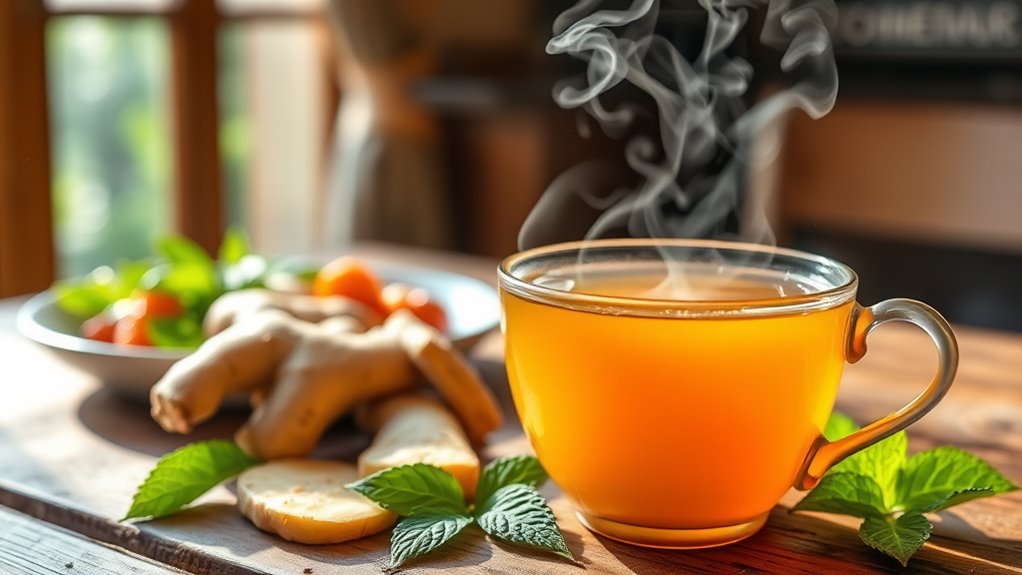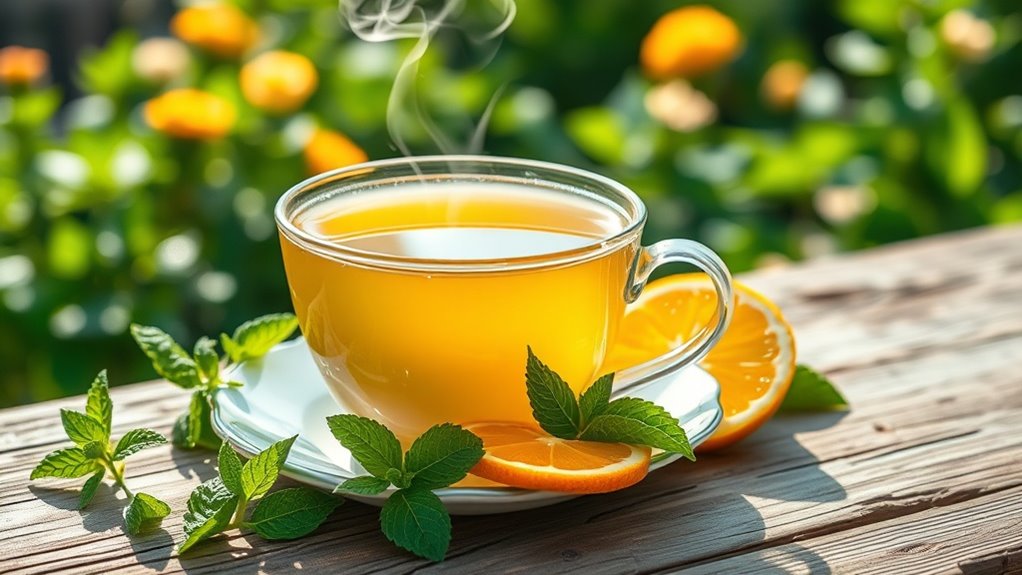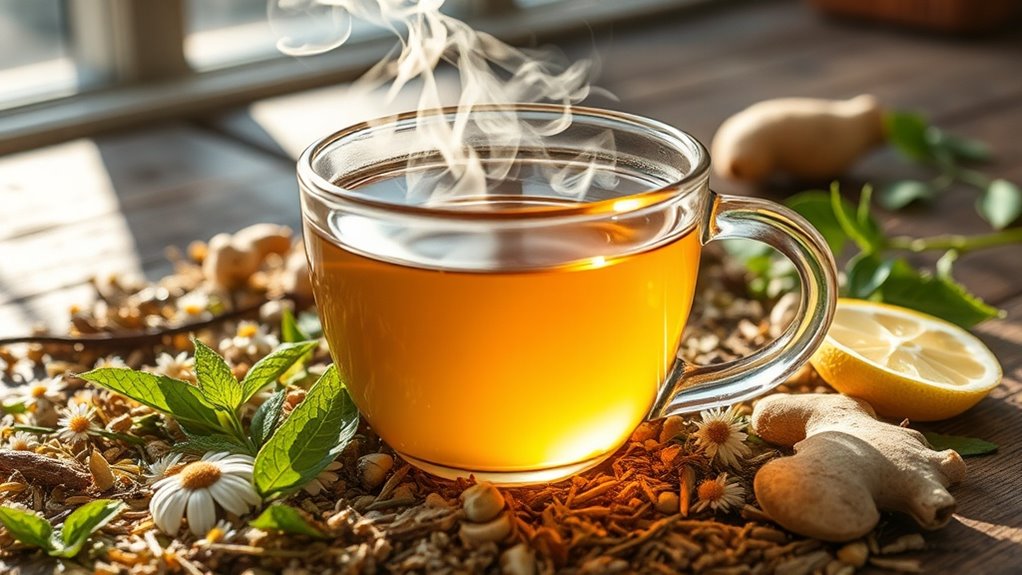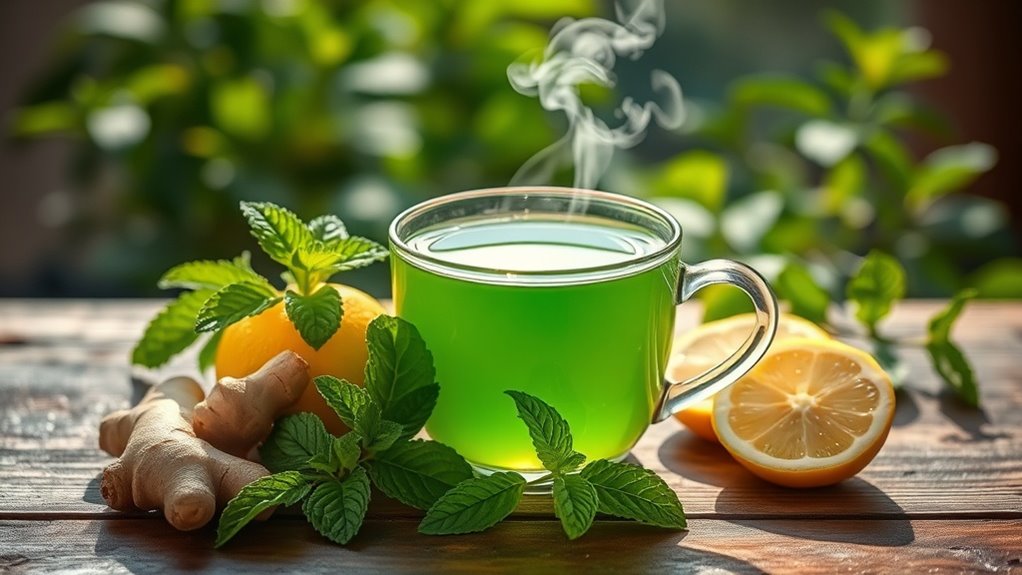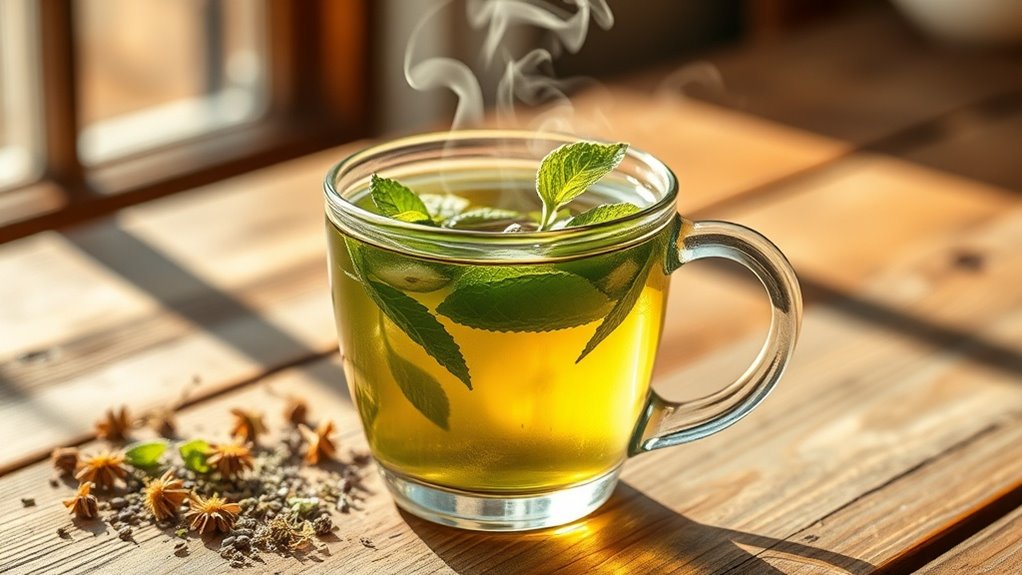This Digestive Tea Changed My Post-Meal Routine
Imagine the warm, soothing steam rising from a cup of tea, filling the air with the comforting scents of peppermint and ginger. This simple post-meal ritual can do wonders for your digestion and overall well-being. By incorporating the right herbal ingredients into your routine, you’ll not only ease discomfort but also transform how you feel after meals. So, how can you create the perfect blend that suits your needs?
The Benefits of Digestive Tea
If you’ve ever experienced discomfort after a meal, you know how crucial it’s to keep your digestive system on track.
Drinking gut soothing herbal tea can help ease bloating, gas, and indigestion. Ingredients like peppermint and ginger promote digestion and calm your stomach. Incorporating healing herbal teas into your routine can further enhance your overall well-being.
Choosing the Right Herbal Ingredients
When you’re crafting your digestive tea, selecting the right herbal ingredients is crucial. Popular herbs like ginger, peppermint, and chamomile each bring unique benefits that can enhance your blend. Incorporating ingredients known for their skin-clearing properties can also promote overall wellness and enhance your post-meal experience.
Popular Digestive Herbs
As you explore the world of digestive teas, choosing the right herbal ingredients can make all the difference in how effectively they support your digestive health.
Popular digestive herbs like ginger, peppermint, and chamomile are known for their soothing properties. Each one offers unique benefits, so consider your specific needs, whether it’s alleviating bloating or reducing discomfort after meals, to find the perfect blend.
Benefits of Each Ingredient
Selecting the right herbs for your digestive tea can significantly enhance its effectiveness, so understanding the benefits of each ingredient is crucial.
For instance, peppermint aids in soothing stomach cramps, while ginger boosts digestion and reduces nausea.
Chamomile can help relax your digestive tract, and fennel alleviates bloating.
Combine for Maximum Effect
To create a powerful digestive tea, you can combine specific herbal ingredients that work synergistically to enhance their effects. For instance, pairing ginger with peppermint can soothe the stomach while boosting digestion.
Adding fennel not only aids gas relief but also complements these flavors.
Experimenting with combinations like chamomile and licorice root can create a calming, effective brew that supports overall digestive health.
How to Brew the Perfect Cup
Brewing the perfect cup of digestive tea is a delightful blend of art and science, and it’s easier than you might think.
Start with filtered water, bringing it to a gentle boil. Use high-quality loose leaf or bags—about one teaspoon per cup.
Steep for 5 to 7 minutes, allowing flavors to infuse fully. Enjoy it warm for maximum digestive benefits! Incorporating digestive herbal tea into your routine can alleviate bloating and promote overall gut health.
Incorporating Tea Into Your Routine
While integrating digestive tea into your daily routine might seem daunting, it can actually be a simple and enjoyable process that enhances your overall wellness.
Start by setting a specific time post-meal to enjoy your tea, perhaps while winding down. Experiment with different blends to find what suits your taste. Incorporating herbal ingredients known for their calming effects, such as chamomile and valerian root, can further support your relaxation.
Soon enough, this ritual will contribute positively to your digestion and daily relaxation.
Personal Experience: A Transformation
As you embark on your journey with digestive tea, you might find that it’s more than just a pleasant beverage; it’s a catalyst for transformation.
Here’s how you can experience this shift:
- Improve digestive comfort.
- Increase energy levels post-meal.
- Foster a mindful eating experience.
- Create a soothing ritual that aligns with your lifestyle.
Embrace the change, and notice the positive impact!
Additional Wellness Practices to Consider
Incorporating additional wellness practices can greatly enhance the benefits you’ve already experienced with digestive tea.
Consider regular exercise to boost digestion and reduce stress.
Mindfulness practices, like meditation, can improve your overall well-being and help you tune into your body’s needs.
Furthermore, maintaining a balanced diet rich in fiber and hydration is crucial for optimizing digestive health and maximizing tea’s effects. Additionally, the consumption of herbal tea is a time-honored practice for healing across generations, providing a natural way to support your digestive system’s health.
